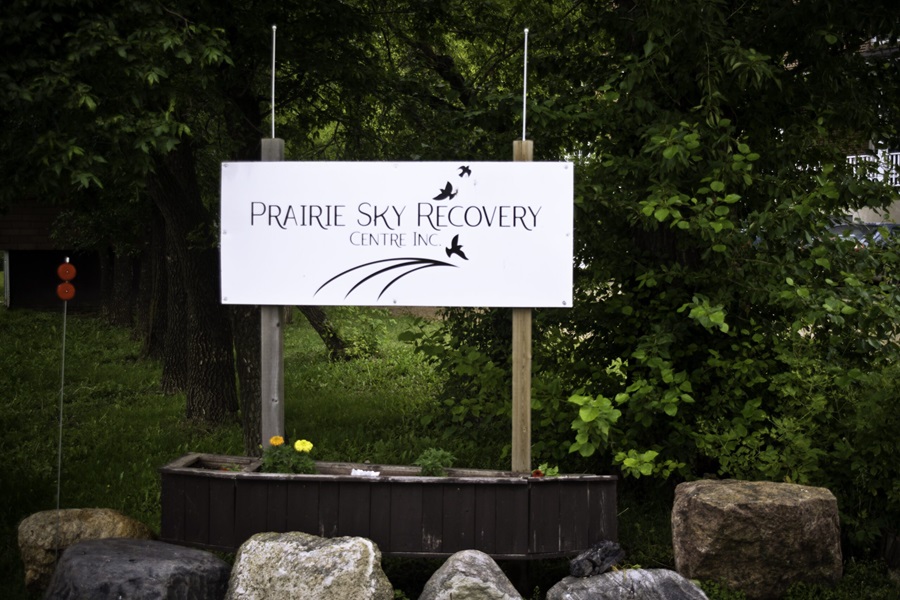“Our job as a private treatment center is to remove as many barriers as we can.”
Jacqueline Hoffman, CEO and co-owner of Prairie Sky Recovery Center, has been working hard to spread the word about her 21-Day Emotional Health and Wellness Program.
The program was created as a standalone service after Prairie Sky Recovery Center, an addiction treatment and mental health recovery center, began receiving an increasing number of requests for support from people who weren't addicted but were struggling with mental health issues such as anxiety, depression, burnout and grief.
Prairie Sky Recovery Center is not a medical facility, but offers a safe, quiet retreat where people can focus on their emotional and mental health outside of a typical hospital environment. Clients are given the tools and time to reflect and refocus on their mental and emotional health. Professional support includes on-site counseling and support services, individual counseling, and weekly therapeutic counseling with a clinical counselor.
“Almost anyone struggling with mental illness can benefit from this program,” Hoffman adds. “Specifically, spouses and family members of people in addiction recovery programs. I say this because when there's an addict or alcoholic in the home, there's often a lot of confusion and resentment. As addiction progresses, so does abuse and trauma. The focus is often on helping the person with the substance use disorder, and the family is often left behind. This program really helps spouses and family members overcome what's happened to them because of their loved one's addiction.”
Program content includes self-esteem, grief, loss, mindfulness, shame, boundaries, negative core beliefs and distorted thinking. Additional modules cover anger management, sexual abuse and trauma, and intimate partner violence. Hoffman acknowledges that many mental health issues are often rooted in negative patterns formed and established early in life, which continue throughout the teenage developmental years.
A big part of the program is emotion identification: many clients feel anger but don't understand that that anger may have a deeper cause, such as sadness or anxiety.
“We help them break it down and really start looking at the emotions behind their actions and their behavior,” Hoffman says.
Because the majority of their services revolve around addiction recovery, Hoffman is keen to highlight the connection between mental health and addiction.
“You can't have an addiction without a mental health issue. People often use drugs or alcohol to cope with something – social anxiety, injury, abuse, whatever it may be. But you can't address the addiction without addressing the mental health aspect first.”
In Canada, many mental health and addiction issues are considered medical issues and addressed through hospitalization. While hospitalization may be necessary for many, it's not an option for many due to a shortage of hospital beds and doctors, Hoffman emphasizes. Outcomes are better when a combination of medication and counseling is applied in a supportive, home-like environment. Intensive treatment is usually only administered after hospitalization, and patients may only see a psychiatrist or psychologist once during their stay, she says.
“Think of the Emotional Health & Wellness Program as very intensive counseling,” Hoffman explains. “Regular counseling typically only has one or two sessions every few weeks. This is three weeks of counseling, six to seven hours a day, 21 days in a row. Going to college full time will produce different results than taking an online course at night.”
Hoffman notes that one of the program's goals is to help clients overcome multiple limitations that they often don't even realize they have: She and her staff help them identify patterns, behaviors, tipping points, hidden traumas and subsequent coping mechanisms.
That being said, many people hesitate just hearing the words “private facility.”
“People who are considering private care often think, 'Oh, I could never afford that,' but many of the services we provide are covered by insurance through a third party or your employer,” Hoffman adds, “so don't be intimidated just because we're private.”
All Prairie Sky Recovery Centre programs are self-referred; no counselor or doctor referral is necessary. For more information, please call 1-888-519-4445, email contactpsr@prairieskyrecovery.ca, or visit https://prairieskyrecovery.ca/programs.
“We will accommodate your schedule.”
Jacqueline Hoffman and Prairie Sky Recovery are recipients of the prestigious CBC Future 40 Award (2018) and the Better Business Bureau Torch Award for Ethical Business Practices (2018), and were also finalists for the ABEX Award (2018, 2019) and the RBC Canadian Women Entrepreneur Award (2021), an initiative of Women of Influence.



